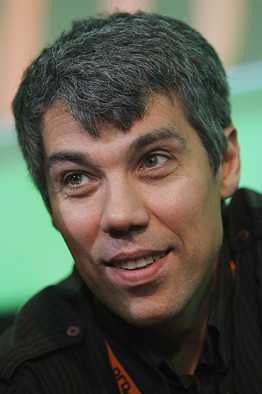Yandex, Russia’s largest search engine, is aiming for at least 20% of Turkey’s search traffic after the company expanded there last year, according to the company’s co-founder.
Ilya Segalovich, CTO of Yandex, told The Wall Street Journal Europe that in most markets the dominant search player has 60% to 70% of the market, while the second player has around 20% to 30%. His first aim is to be the second player in the market.
“The first stage of success will be to have 20-30 market share. If we can get to the end of the year 5% that would be great for us. So far we have less than 1%,” he said.
According to company figures released in January, Yandex is attracting some 100,000 daily users. Turkey’s online audience is estimated to be 35,000,000 according to Internet World Stats.
Mr. Segalovich said Yandex had chosen the country as their first non-Russian speaking venture for two reasons: it was being under-served by Google and it provided a good challenge.

“We liked Turkey first because they have great growth opportunities. It is a huge country with lots of potential users [and a] fast-growing Internet. We looked at the services provided by Google. Without competition the quality of the services is lower than it is with competition.”
But, said Mr. Segalovich, there was simply the difficulty of the challenge itself. “Will we be able to go to the country where we don’t know the language? It is not going to the country where most of the employees speak Russian, like Bulgaria or Poland. Going to Turkey no one speaks Russian. We had to redesign all the internal procedures and the parts of the engine to be worked with people who don’t know Russian.”
There was one interesting challenge they had to tackle regarding their version of Street View: the law required them to blur faces. “That is technologically a hard task to do. Google was doing that. It required a super-hard effort to have a face recognition on a huge scale. We spent three months making this,” Mr. Segalovich said.
But there was a problem. “Unfortunately, we blurred Ataturk’s face. There is another law that prohibits this in Turkey.”
Now, every time a complaint is raised about blurring of Ataturk’s face, the company goes in by hand and manually un-blurs the image. “We are very happy to do this. It is about being culturally sensitive,” Mr. Segalovich said.
Mr. Segalovich wouldn’t say which countries the company was looking at next, but did hint that further expansion was highly likely. He suggested that it was more likely to be elsewhere in Europe, rather than in areas like the Middle East.
In a wide ranging interview, Mr. Segalovich also said Russian e-commerce is set to take off thanks to Apple Inc.’s iPhone.
“The iPhone appears and suddenly Russians start to pay for apps on the iPhone,” he said. “You can imagine how hard it was to get people to pay just 100 rubles ($3.40) over the Internet just a few years ago. They were just ‘why should I? Can I find it free?’ Now it is getting more like a habit after the iPhone.”
Mr. Segalovich was a guest speaker at the recent TNW conference in Amsterdam and discussed how the Russian Internet is changing and the company’s recent expansion into Turkey.
He admitted that even if people wanted to pay for things, the mechanisms to do so and the logistics to deliver goods have some way to go. Still, he was optimistic that change was happening quickly.
“You can look at the share of tickets bought online in Russia. After people start to use plastic cards to pay for tickets they get used to paying for anything else. That part of the story is changing rapidly in front of our eyes. There are lots of good signs about that.”
Yandex is Russia’s largest search engine and claims to be the most popular site in the Russian-speaking Internet. In May 2011, Yandex raised $1.3 billion in an initial public offering on the Nasdaq. It was the biggest U.S. IPO for a dotcom since Google Inc. went public in 2004.
Ilya Segalovich,
Russia,
Turkey,
Yandex
via Yandex Aims For 20% of Turkey’s Traffic – Tech Europe – WSJ.

